Josh's story: "I'm lucky to be alive"
A footballer’s sudden cardiac arrest shows the need for AEDs at our sport clubs, and what could happen without them.
Josh Margetts is watching a video of the moment he died.
It was 23 October 2017. He was halfway through a futsal training for Auckland Football at the Barfoot and Thompson Stadium in Kohimarama.
Suddenly, the 24-year-old collapsed on the court. His team-mates didn’t know what was happening. Josh’s heart stopped working and he was going through ventricular fibrillation.
It is a condition which is a rapid-fire, life threatening, inadequate heartbeat. His heart wasn’t able to pump blood properly to his body.
Months later, Josh is watching a video of the drama unfolding. “The hardest thing in all of this, apart from my recovery, was watching back the footage,” says Josh.
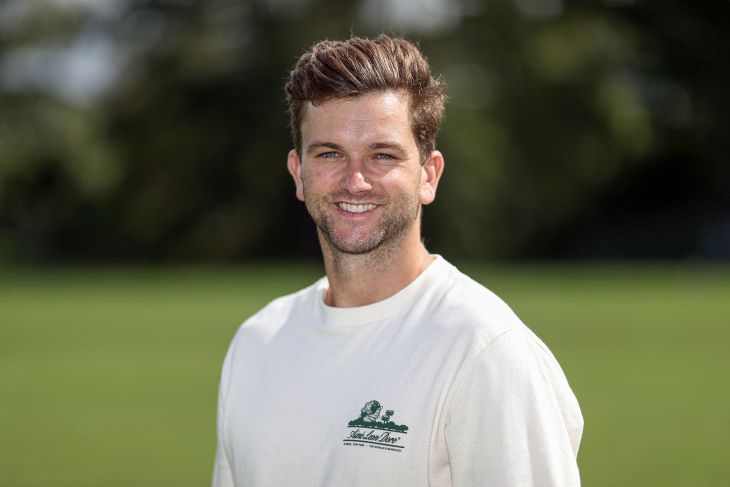
“It was pretty confronting. To see the impact it had on some of my closest mates. They were pretty much watching their friend die in front of them.”
Josh’s version of events is based on other people’s recollections and video footage.
“I don’t have any memory of the event or for three or four days before the event happened,” says the 29-year-old. His heart stopped beating for 23 minutes.
“The main risk that comes from that is the brain being starved of oxygen,” he says.
Josh knows he was incredibly lucky. He had a team-mate in Kareem Osman, who is a doctor. Also a member of the coaching team, Alejo Perez Leguizamon, had trained in First Aid.
“They followed the three most important things you can do in that situation – one call an ambulance, two start CPR, and three use an AED. “They saved my life.”
The long road to recovery
Josh knows he is lucky to be alive and fortunate to not have serious brain damage. “That is nothing short of a miracle. I’m very grateful.”
In all, Kareem and Alejo alternated giving Josh CPR for more than 25 minutes before the ambulance arrived. During that time, he received seven shocks from the AED which saved his life.
St John’s data shows around 70 percent of the people who suffer a sudden cardiac arrest outside of hospital die at the scene. That is if there is no intervention like CPR or a defibrillator.
Josh arrived at hospital and was placed in an induced coma for three days. His friends and family waited as he fought for his life.
When he woke up, he started the process of regaining his memory, learning to walk again and a range of medical tests. He stayed in hospital for two weeks.
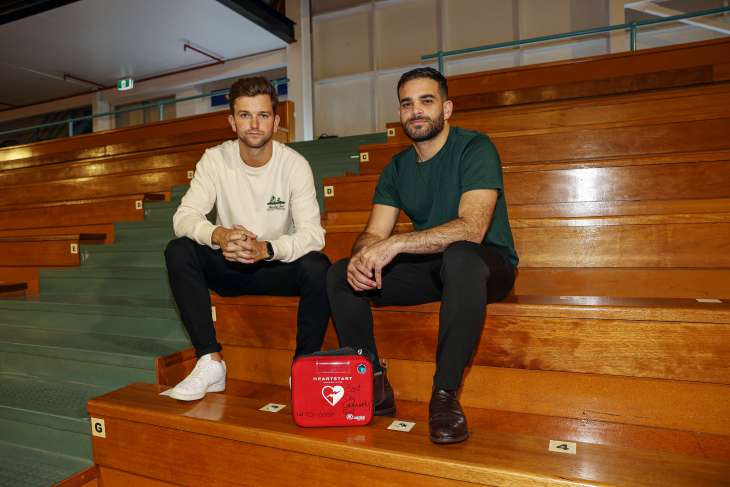
It took six months for Josh’s brain function to get back where it wasn’t impacting his day-to-day life.
“It took time and patience”. There were two parts to his recovery – his physical recovery and his brain function. He had surgery where they inserted an ICD (an internal defibrillator) into his heart.
“That is quite an intrusive surgery. They put a machine inside you with a wire that goes into your heart. The recovery from that was the scar healing but also your body coming to terms with this foreign object that is inside you.”
Learning how to live again
It took him a few months to get comfortable, in terms of being able to move around and sleep properly.
Josh got home and tried to build on his ability to walk. He began with getting around his house.
“Three weeks before that I was a really fit, healthy young guy and here I was celebrating being able to walk for 1km without losing breath. It was an intense change.”
Once his scars healed well and his body was functioning again, Josh was back playing football at a competitive level after six months. But his memory was a battle.
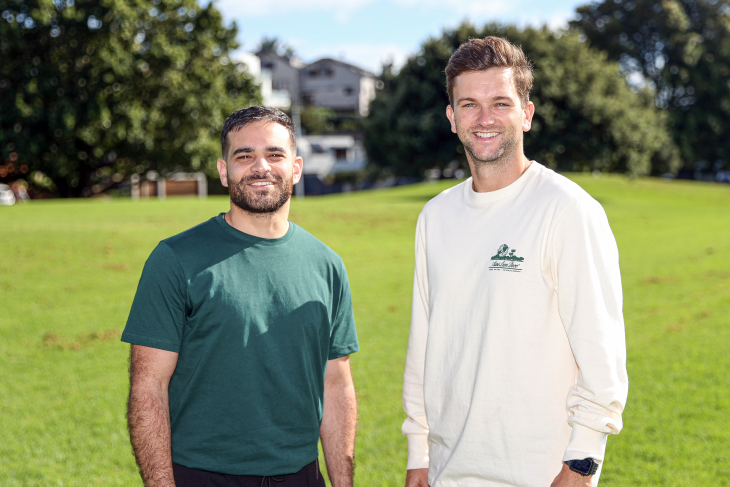
He had a decent amount of time off work and was unable to drive a car for six months.
“Having to concentrate and sit in front of screens and apply my thought processes to my job was tricky. I made lots of mistakes, there was lots of things I couldn’t remember, and I was getting pretty frustrated. It took time and patience.”
Josh experienced symptoms of Post-Traumatic Stress Disorder (PTSD) relating to the event. Things such as panic attacks, impact on his sleeping patterns, and short periods of depression.
“Those moments, while challenging, have not defined me as a person. They are parts of who I am that I have tried to welcome with compassion and understanding.”
He has found exercise, a healthy diet, meditation and talking to a psychologist regularly have helped. "I am focused on putting time into authentic connections with loved ones” has helped.
“It can happen to anyone”
Josh is telling his story to help others. He was 24 when he had his sudden cardiac arrests, and he reckons it shows they can happen at any age and stage.
“It’s not just happening to people who are old or have previous heart conditions or aren’t fit. It can happen to anyone There were no real signs that this was going to happen to me.”
He encouraged all football clubs to have an AED and a plan for this winter season. He says the AED is only as good as the people who know how to use it.
“Every day, it is the people who save lives,” he says. “Early intervention makes a huge difference to your chances of survival. There is no real excuse for everyone not having an up to date basic first aid training.
“Learning CPR, knowing where the AED is at your local club or organisation. St John have an app so on your phone you can locate where the nearest AED is.”
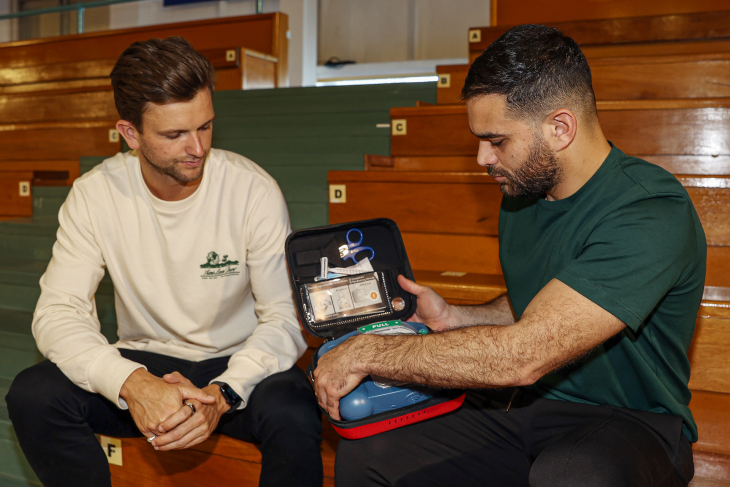
Creating a safer player and club environment
New Zealand Football (NZF), in partnership with FIFA and ACC Sport Smart, deliver the Smart Start AEDs in Clubs Programme.
There are around 500 football clubs in Aotearoa. Since 2016 NZF has donated 280 AEDs to football clubs around New Zealand through the AED Smart Start campaign.
In January, we renewed our investment into the NZF Performance and Prevention programme. The programme supports footballers in enhancing their performance, injury prevention, and wellbeing.
“We share a vision with NZ Football for all football clubs throughout Aotearoa to have an AED,” says Tom Jackson, one of our Injury Prevention Partners.
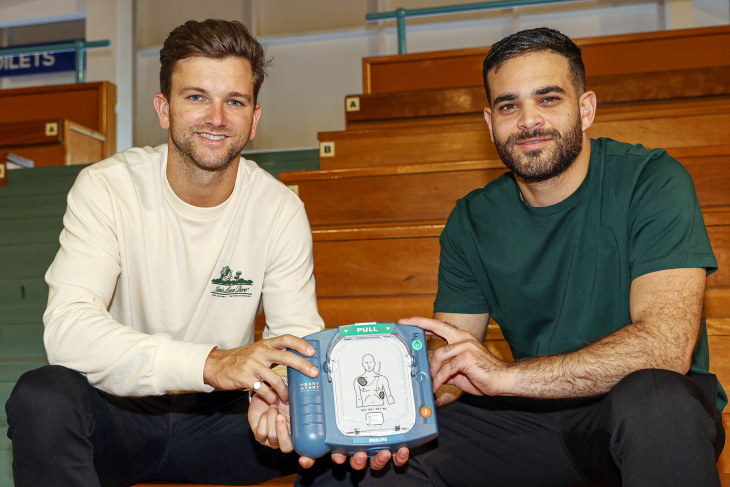
“We are pleased to support NZF and football clubs in creating a safer player and club environment, by having an AED at their club. This could potentially save a life should there be a suspected sudden cardiac arrest.”
Josh says it is “massive” to see ACC supporting the AED Smart Start campaign.
“It’s helping reduce the likelihood of the negative outcomes of sudden cardiac arrests,” he says.
“AEDs have been provided to hundreds of clubs around New Zealand. There are heaps of online resources around club policies, workshops and webinars. They are great tools to upskill everyone regardless of their role in the club.
“This work is massively important, and it is great to see ACC supporting it.”
Proving people wrong
Josh says the strongest emotion he felt about getting back on the futsal court was determination. He wanted to prove people wrong.
“I had this confidence, almost arrogance, that I was going to do it,” he says with a laugh. “I was so focused on trying to show, rightly or wrongly, that I wasn’t broken. I wasn’t weak. I had a point to prove.”
He says the feeling of getting back to play football and futsal was indescribable.
These days Josh is playing first-team football for Auckland club Western Springs. He also plays futsal for Auckland and Futsal Whites.
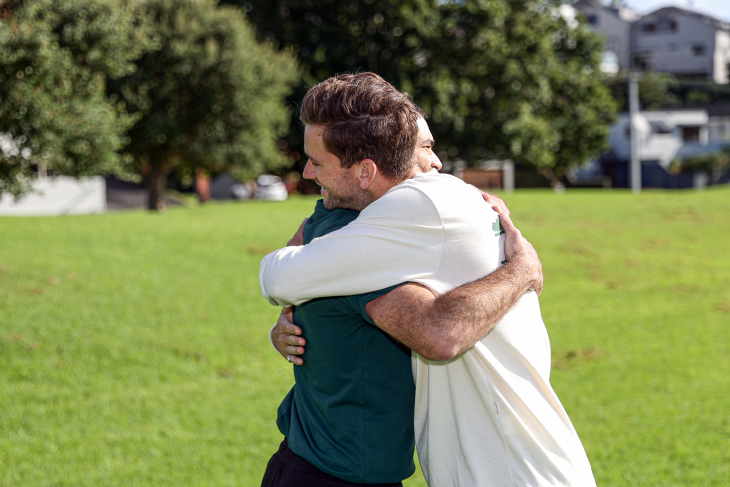
“It was so good to be able to do the things that I loved again. To not have that ruled out in my life, I was really grateful for that.”
Josh says his event changed his perspective on life. “It had a profound impact on me. It made me reflect on my values and the important things that I hold dear.
“I definitely live more in the moment now. I try to be more present in my life and in my relationships, I try to get the most out my life. It helped me to find my purpose.”
If someone suffers a sudden cardiac arrest, follow these steps:
- Call an ambulance
- Start CPR
- Use an AED (Automatic external defibrillator)
For more information on AEDs and New Zealand Football’s Performance and Prevention initiatives, visit www.nzfootball.co.nz


